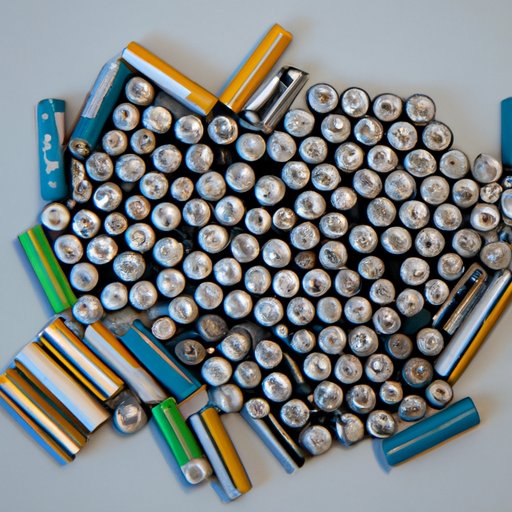
How to Dispose of Lithium Batteries Responsibly
As electronics become more prevalent in our daily lives, so do their power sources. Lithium batteries are a commonly used power source, but their disposal can pose a problem for the environment. It is important to dispose of lithium batteries properly to minimize the impact on our surroundings. This article will provide detailed instructions on how to handle and dispose of lithium batteries, ensuring environmentally responsible behavior.
Follow Local Regulations
Before disposing of Lithium batteries, it is crucial to research the guidelines specific to your area. Checking with local regulations will help ensure adherence to laws and proper disposal practices. Typically, these guidelines require lithium batteries to be separated from other wastes and disposed of as hazardous waste. You can check the website of your local government to find specific regulations.
Additionally, recycling lithium batteries is essential to preserving our environment. Consider reaching out to your local waste management facility for instructions on how to recycle them properly. They can provide information on special programs, sorting and disposal instructions and the dangers associated with improper disposal.
Contact Your Local Waste Management Facility
Though many Lithium batteries are exempt from strict federal regulations, it is still crucial to handle these batteries with care. Government regulations, local facilities, and individual companies may have specific guidelines for proper Lithium battery disposal.
You can opt to contact your local waste management facility to discuss recycling options. They may offer specific recycling stations or instructions on separating and disposing of batteries safely. Additionally, the waste management facility can alert you to any changes in the guidelines to stay informed about legal practices for Lithium battery disposal.
Avoid Storing Batteries in a Hot Environment
One detrimental factor in the lifespan of a Lithium battery is heat. High temperatures can weaken the battery life and cause it to malfunction. Wear and tear on the battery can also occur, leading to leakage or other hazards. It is best to avoid storing batteries in areas with a temperature higher than 85 degrees Fahrenheit, including direct sunlight or a vehicle’s compartment. Instead, aim for a cool, dark space like a desk drawer or closet to increase the battery’s lifespan while also mitigating the environmental impact.
Consider Recycling Programs
Several manufacturers and retailers of electronic products offer recycling programs to take the burden of disposal off of the consumer’s hands. These companies collect defective or used electronic devices and recycle the components of the device that are still useful. You may also find organizations that recycle just Lithium batteries separately. For specific information on recycling programs near you, search the internet or reach out to the manufacturer or seller.
Invest in Rechargeable Batteries
Instead of disposing of Lithium batteries, consider investing in rechargeable batteries, which decrease consumer waste and reduce the production of harmful metals in the disposals of such batteries. Consumers can utilize rechargeable batteries numerous times before needing to recycle them or dispose of them. Much like Lithium batteries, rechargeable batteries store a charge with lithium-ion and are now readily available in every size. Lithium in Lithium-ion batteries is notorious for polluting soil and water in the event of improper disposal, whereas charging a rechargeable battery is an environmentally safe and responsible way to power your household devices.
Use Battery Containers
Battery containers can allow for safe storage of batteries and encourage proper disposal. Many containers are deemed safe and have the added benefit of preventing any leakage or physical damage. These storage containers can come in a variety of materials, including plastic or metal. Keep your batteries clean, organized, and safely stored with the aid of a storage container to reduce any unwanted environmental impact.
Donate or Sell Functioning Batteries
If a Lithium battery is still functioning correctly, there is no need to dispose of it. Many organizations welcome donations of functioning Lithium batteries, including schools, libraries, and community centers. A functioning battery can power a device like a calculator or flashlight for a long period before dying down. Selling batteries that are still in good condition is another way to give back to the environment. Many organizations are willing to pay for used or new batteries that they can restore or repurpose.
Conclusion
Proper disposal of Lithium batteries is critical to ensure the safety of humans and the environment. Follow your local governing regulations to stay legally up-to-date and reachable waste management facilities for specific guidelines regarding Lithium batteries. Always opt to recycle used or faulty Lithium batteries instead of throwing them in the trash, where they can pollute our environment. Utilize rechargeable batteries to decrease waste and reuse materials. Lastly, use battery holders for safe storage and donate or sell a functioning battery instead of disposing of it. It is our responsibility to play an active role in preserving our environment, taking steps to maintain Lithium batteries at their full potential without any harm to the earth.





